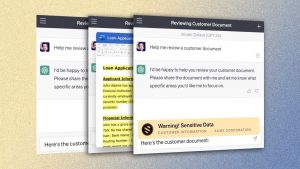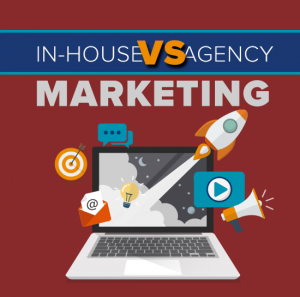For recruitment companies and headhunting firms around the world, recruitment as a function demands efforts on two fronts: the candidate front, and the client front. Seeing as hiring campaigns are frequent and in most cases simultaneous, there’s a lot more data to consider as a recruitment agency than there is for internal recruitment.
Managing client data is as important as candidate data, and can be as large in terms of volume. In order to avoid critical issues and to reinforce transparency, headhunting agencies can consider recruitment CRM for their operations.
What is recruitment CRM?
Recruitment CRM (Customer relationship management) are software solutions that help a company coordinate its communications with clients and potential leads. Generally leveraged for organization and to increase revenue, recruitment CRM aggregate and organize client data that can be analyzed to help companies understand and improve these relationships.
Not to be confused with a candidate relationship management software, a recruitment CRM handles data on the client end as well, making it a unique opportunity for client-focused recruitment agencies.
1- Detailed client profiles
One of the most powerful perks of adopting a recruitment CRM is in the detailed client profiles that these solutions create. Companies ought to remember that this affects their customer’s experience in many ways. According to research conducted by Deloitte, companies that operate with a client-centric approach are 60% more profitable compared to companies not focused on the customer.
In a manner of speaking, users are able to create a customer network in a single searchable database that contains all information pertaining to their hiring campaigns, points of contact, and their position on your own sales pipeline, be they an established client you’ve worked with for years, or a prospective lead you’re working on converting.
Regardless, recruitment CRM allows you to nurture and manage customers from prospect to clientele, a pipeline that is customizable to fit your own sales process.
2- Keeping customers engaged and informed
As part of providing the best customer experience possible, as well as ensure that all parties involved are on the same page, recruitment CRM allows users to keep their clients engaged and informed.
A business relationship that keeps customers involved is more likely to succeed. As such, recruitment CRM users are able to organize and manage client projects, from niche headhunting to large-scale recruitment. Not only that, but users are able to invite their clients and points of contact to collaborate on the platform through a dedicated guest portal.
This allows them to view the current recruitment campaign progress, its effectiveness, and contribute to operations through internal communication tools. Facilitating these client relationship activities ensures that everyone is on the same page and that clients are able to monitor progress without difficulty.
3- Boosting internal collaboration
Beyond reinforcing client relationships and contributing to the collaborative aspect of talent acquisition, recruitment CRM makes teams significantly more efficient and more collaborative.
At times, internal communication, especially for large-scale projects, can be an issue if not managed correctly. The very concept of multiple client campaigns being conducted at the same time can be intimidating. Recruitment CRM centralizes all client data on one platform, allowing for quick project takeover with little complications since all project details are readily available.
But most importantly, it gives an understanding of the general campaign progression for everyone involved. The agency’s management and decision-makers are able to monitor their team’s progress, just as clients are able to track and monitor the agency’s work.
4- Effective client relationship management
A lot goes into maintaining a positive client relationship. It’s more than simply adopting a polite and friendly approach to communication. Creating, testing, and implementing the structure and process for effective CRM are the real challenges, as well as instructing your team to follow them. A well-crafted process should always account for campaign goals that remain consistent for employees regardless of management or team changes.
While these two elements would help develop an internal process to last for years, they would also provide insights regarding how the company intends to track, monitor, and assess client relationships. Often enough, such insights point toward recruitment software solutions.
Companies interested in developing their client relationship management processes can consider recruitment CRM solutions in addition to any SaaS platforms they may or may not use.
Leaders who set the company’s vision and goals are aware that the key to properly growing and developing the business is in maintaining positive client relationships. Software tools are an option to set down strong processes that continuously nurture these relationships by tracking and centralizing all project information.
For example, Manatal’s recruitment software offers both all ATS functionalities and all recruitment CRM tools, allowing companies to recruit faster, support innovation, and achieve more in their hiring campaigns. Leaders with a long-term vision of effective and reliable processes can utilize Manatal to help align the team with the process, resources, and goals, thereby delivering higher profit, and improving customer satisfaction.
Click here to explore our 14-day free trial.
Business & Finance Articles on Business 2 Community
(15)







